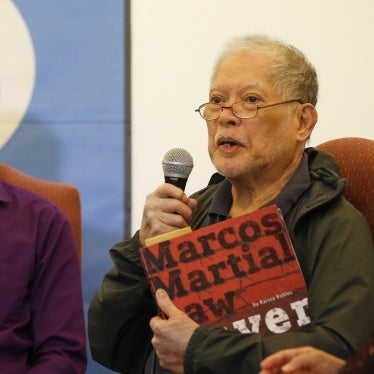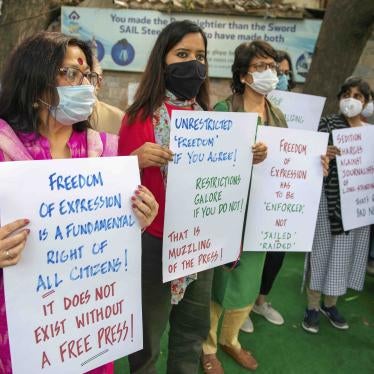A Tibetan who was detained in China along with two foreigners investigating the impact of a World Bank project is at serious risk of torture or ill-treatment, Human Rights Watch said today. The international monitoring group called on the World Bank along with the U.S. and Australian governments to make high level appeals for immediate access to the detained Tibetan translator, Tsering Dorje, and call for his release. Dorje was hired as a Chinese language translator by an American, Daja Meston, and an Australian, Gabriel Lafitte. All three men were picked up by Chinese state security officials in Xiangride, a town on the edge of the Bank project area in Qinghai province, on August 15, 1999. Dorje's current whereabouts are unknown.
"We're relieved at China's decision to release Mr. Lafitte this past weekend," said Mike Jendrzejczyk, Washington Director of the Asia Division of Human Rights Watch. "But we are deeply concerned about Tsering Dorje and the American still in custody. We've documented many cases of Tibetans being tortured during interrogation. There is real potential for those associated with foreigners considered ‘hostile' to China's official interests to be severely mistreated and given a long prison sentence," he added.
Dorje, a teacher in his mid-twenties from a traditional Tibetan village, is a Chinese citizen. In October 1998, he served as an official translator for a delegation from the European Union visiting Qinghai province and Tibet. He has also provided translation assistance to private, Western-based humanitarian organizations working in China.
Gabriel Lafitte was released on August 21 and returned to Australia following high level appeals from the World Bank and interventions by the Australian government. Jiang Zemin, China's president, is due to arrive in Australia on September 5. Lafitte told Human Rights Watch that he was subject to hours of intense interrogation, though he was not physically mistreated. As a Tibetan and a Chinese citizen, Dorje is clearly at serious risk of the kinds of abuses Human Rights Watch has documented in prisons in Tibet and elsewhere in China including beatings, forced confessions, deprivation of proper medical care, and prolonged periods of isolation.
"The World Bank should make it clear that it will hold Beijing responsible for the mistreatment of either Chinese citizens or foreigners who try to visit the Bank-funded resettlement project," said Jendrzejczyk. "The Bank should warn Chinese officials that these abuses may make it difficult, if not impossible, for donors to fund the project."
On June 24, 1999, the World Bank's board of directors approved a $160 million poverty reduction project that includes plans for the voluntary resettling of 57,750 farmers to a traditionally Tibetan ethnic area of Qinghai province, on the condition that China would open up the project area to access by outside visitors.
Daja Meston, the U.S. citizen detained in Qinghai, remains in a Xining hospital, where he is being treated for a broken back and other serious injuries he received while in official custody. Chinese authorities say he jumped from the third floor while trying to escape. Human Rights Watch urged the U.S. to insist on a thorough investigation of all three men's detention and treatment in custody.







